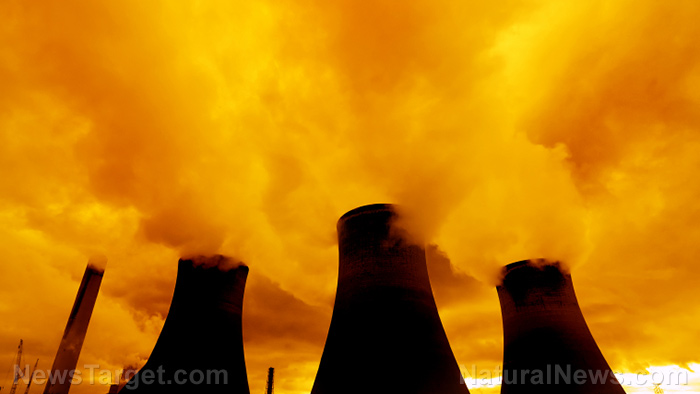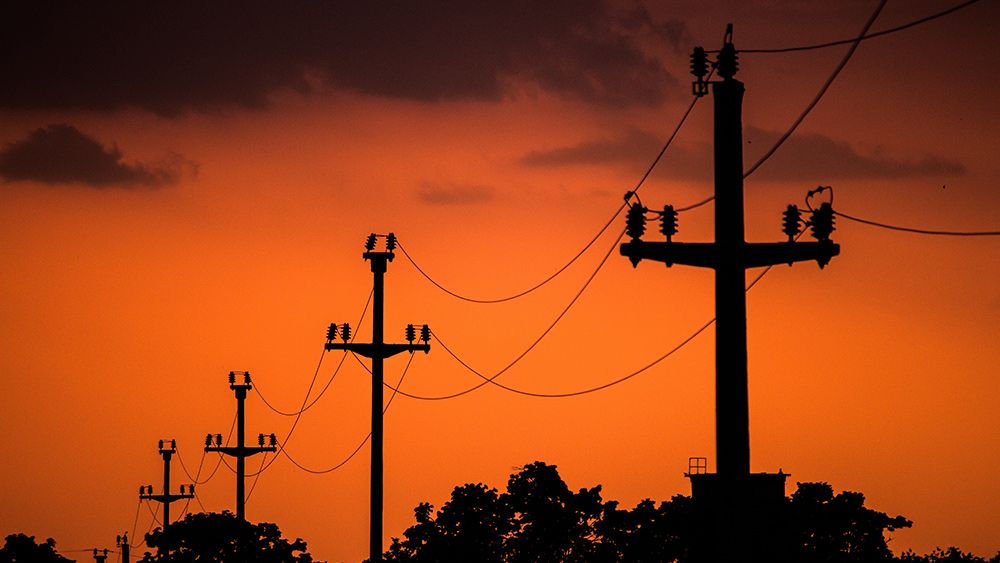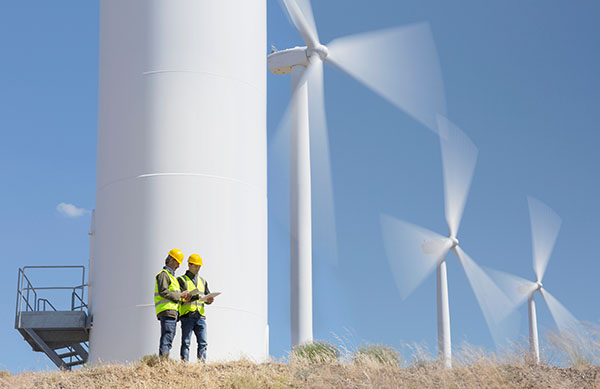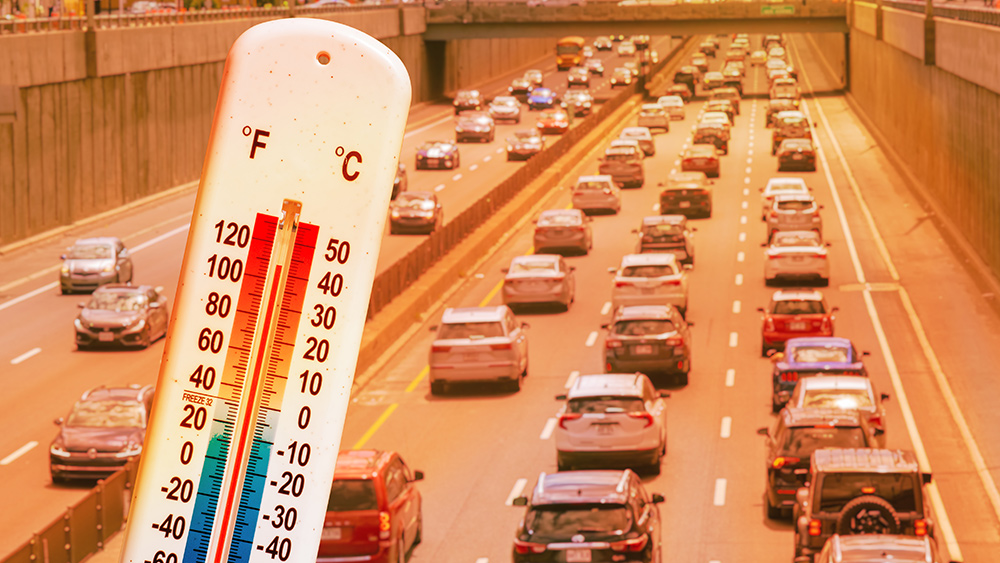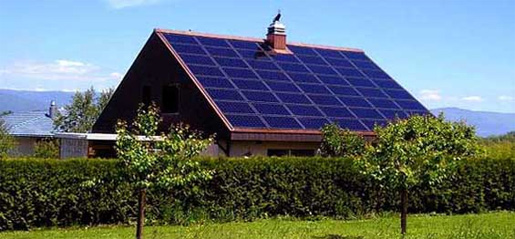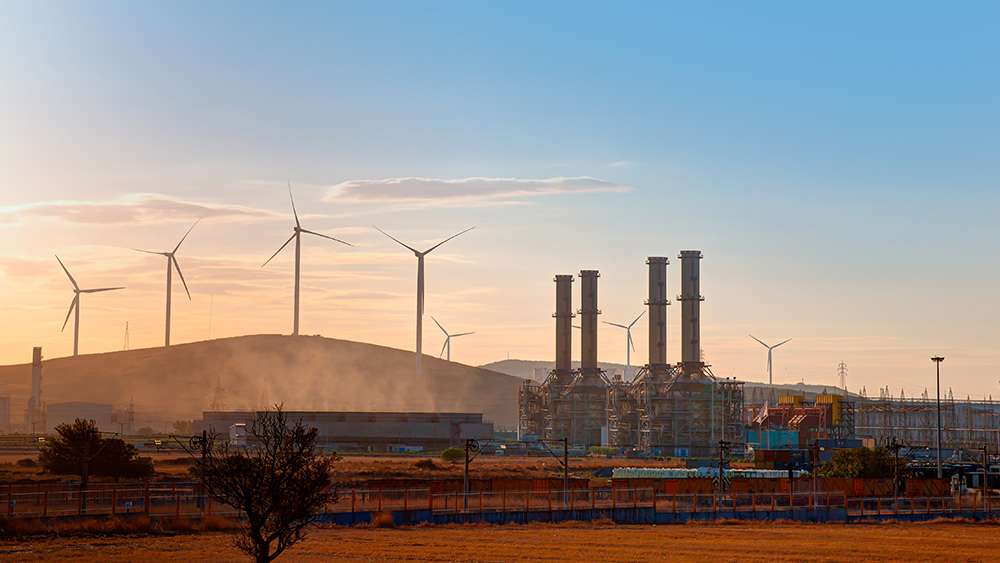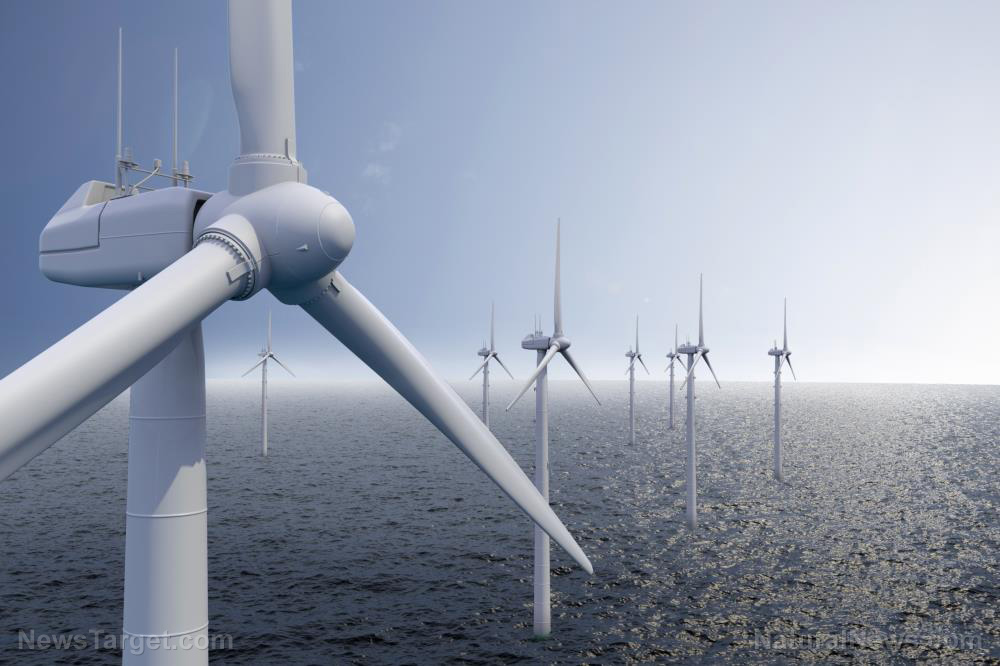Hurricane Helene leaves millions without power and dozens dead… and the post-storm situation is only getting worse
10/02/2024 / By Kevin Hughes

The southeastern U.S. is in crisis following the destruction wrought by Hurricane Helene across several states. The hurricane left millions of people without power and forced anxious families to line up at gas stations for fuel.
The chaos has even led to increases in crime, including at least one recorded instance of a group of people attempting to steal a generator. The confirmed death toll for Hurricane Helene rose to at least 177 people as of Wednesday, October 2, as recovery efforts continue. (Related: BREAKING: Hurricane Helene leaves at least 40 dead, 4.4 million people with no electricity or cell service.)
At least 2.5 million customers across South and North Carolina, Georgia, Florida and Virginia have at least temporarily lost power because of the storm. In Augusta, Georgia, footage spreading on social media showed cars lining up for miles at gas stations, waiting to fill up their tanks. Social media users reported that a Kroger in the city had to close down because it no longer had any food to sell.
The depressing sights have left Americans wondering where the federal government is to help.
“Many people are stranded with little to nothing. WHERE IS [the Federal Emergency Management Agency] FEMA? What are government officials doing? There is no WATER!” a social media user asked.
Power in Augusta is only expected to be restored on Saturday, Oct. 5, at the earliest. Photos circulating on social media show the terrible destruction Hurricane Helen wrought on the city, with downed power lines and uprooted trees blocking roads.
Hurricane Helene made landfall as a Category 4 storm in Florida
Hurricane Helene made landfall as a Category 4 storm last week, hitting into Florida’s Big Bend area with winds speeds of over 140 miles per hour. From there, the storm made its way north into Georgia.
“What it looks like from the air is it looks like a tornado went off it looks like a bomb went off. And it’s not just here, it looks like this from here all the way to Augusta,” said Gov. Brian Kemp during aerial observations of the damage on Sunday, Sept. 29.
Georgia Power Co. CEO Kim Greene said: “This is certainly going to be multiple days of outage.”
From Georgia, Hurricane Helene weakened as it continued to move north, but it still released torrential rains on the Carolinas and Tennessee, causing extensive flooding and even some landslides.
Western North Carolina found itself cut off as roads, along with Interstate 40, were forced to close due to flooding.
In rural Unicoi County in eastern Tennessee, extensive flooding resulted in rescue operations, including helicopter evacuations of several dozens of patients and staff from the rooftop of a small, rural hospital.
Rescue activities extended into Saturday, Sept. 28, in Buncombe County, North Carolina, where parts of Asheville were underwater. “It’s not that we [were] not prepared, but this is going to another level. To say this caught us off guard would be an understatement,” Buncombe County Sheriff Quentin Miller said.
Follow Disaster.news for more stories about hurricanes and other natural disasters.
Virginia Gov. Glenn Youngkin says the devastation caused by Hurricane Helene is “heartbreaking.” Watch the video below.
This video is from the TrendingNews channel on Brighteon.com.
More related stories:
Major damage in Florida after catastrophic Hurricane Helene made landfall.
Sources include:
Submit a correction >>
Tagged Under:
Asheville, Augusta, big government, chaos, climate, Collapse, disaster, Ecology, electricity, environment, FEMA, Georgia, grid collapse, Hurricane Helene, hurricanes, national security, natural disasters, North Carolina, panic, power, power grid, SHTF, weather terrorism
This article may contain statements that reflect the opinion of the author
RECENT NEWS & ARTICLES
PowerGrid.News is a fact-based public education website published by Power Grid News Features, LLC.
All content copyright © 2018 by Power Grid News Features, LLC.
Contact Us with Tips or Corrections
All trademarks, registered trademarks and servicemarks mentioned on this site are the property of their respective owners.


